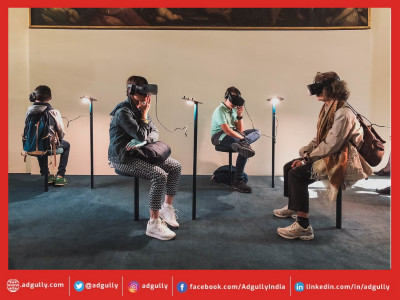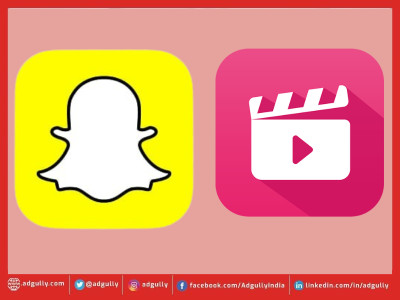AR may disrupt brand building, reveals Omnicom-Snapchat study
Augmented Reality (AR) advertising may be growing rapidly, but the majority of experiences ignores the diverse audiences and can be damaging to users’ self esteem as well, reveals a research survey done by Omnicom Media Group (OMG) and Snapchat.
The survey aimed at understanding the long-term effects of AR on brand building.
Moreover, according to GlobalData’s Emerging Technology Sentiment Analysis Q2 2021, it was found that AR is the most disruptive emerging technology. In the poll, 70 percent of respondents stated that AR would deliver either slight or significant disruption to the industry.
AR is a technology that will powerfully shape our world in the coming decades. AR has really picked up pace in the last few years, especially due to the Gen Z preferring the use of social apps such as Instagram, Snapchat etc, over their real friends and reality.
The AR market size, which was USD 42.20 billion in 2022, is expected to reach USD 1109.71 billion by 2030. Therefore, the AR market will exhibit a CAGR of 50.7 percent during 2023-2030. Moreover it is estimated that 2.9 billion users worldwide will be frequent AR users by end of 2023, a number that is expected to grow to 4.3 billion by 2025. This is according to a 2021 Deloitte study commissioned by Snap Inc.
The survey by OMG and Snapchat involved interviews with AR practitioners and creators, quantitative surveys with 5,000 internet users across Australia, Canada, Saudi Arabia, the UK and the US, and a four-week measure of how brand associations changed over time with US respondents.
OMG and Snapchat’s survey revealed that AR experiences may enhance a variety of brand perceptions and lead to increased recall and purchase intent when compared to vertical video ads. It also found that AR complements video ad buys by driving incremental gains, rather than acting as a replacement.
On the other hand, it is also true that most brands do not really test whether their AR experiences are used by the majority of users, as the filters and lenses in AR often ignore diverse users or misidentify them also.
Moreover, the impact of social media filters and lenses on users ‘body image and mental health’ is also an issue that is being scrutinised by governments around the world.
Wise and conscious use of augmented reality should bring measurable benefits, which will be seen in increased effectiveness at work, in education, and in well-being, and in tangible increases in income. Inappropriate “social” use of AR technology, on the other hand, may raise moral and ethical concerns and, in extreme cases, may even exceed the established legal standards and rules of social co-existence.
It is also worth noting that the overuse of AR technology can have a negative impact on human health, both mental and physical, with side effects including eye issues, ear problems, and states of mental dependence.


















Share
Facebook
YouTube
Tweet
Twitter
LinkedIn